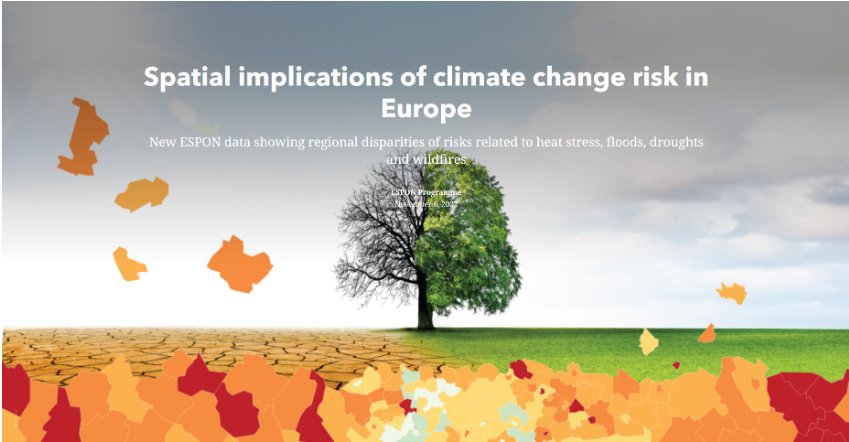![[READAPT] - Re-Naturing Territorial Development for Climate Risk Adaptation](/sites/default/files/2025-03/restoring-nature.jpg)
[READAPT] - Re-Naturing Territorial Development for Climate Risk Adaptation
Projects
27 January 2025 – 29 May 2026
EUR 769,358.00
The Re-Naturing Territorial Development for Climate Risk Adaptation (ReAdapt) project is a European Research Project that aims to strengthen territorial climate adaptation strategies by integrating Nature-based Solutions (NbS) into regional and local governance. Climate change is already having significant spatially uneven impacts across Europe, affecting ecosystems, economies and communities. While NbS—such as green infrastructure, ecosystem restoration, and climate-adaptive urban planning—are increasingly recognised as effective solutions, their practical implementation at the regional and local levels remains a challenge. Several key barriers hinder the widespread adoption of NbS, including:
- A fragmented knowledge base, with many NbS research projects lacking clear territorial focus.
- A lack of data standardisation and spatial indicators to support evidence-based policymaking.
- Limited capacity and expertise among local and regional policymakers to implement and finance NbS projects.
- Difficulties in securing funding, as NbS often fall between environmental and urban development policy domains.
The ReAdapt project directly addresses these challenges by compiling existing knowledge, generating new data and providing practical tools to policymakers. It will focus on producing territorially sensitive, evidence-based recommendations that can facilitate the integration of NbS into regional development strategies.
The project aligns with broader EU policy frameworks, including the European Green Deal, the EU Strategy on Adaptation to Climate Change and the Territorial Agenda 2030. By bridging the gap between research, data, and policy implementation, ReAdapt aims to ensure that European regions—especially those most vulnerable to climate risks—are better equipped to use NbS as a tool for resilience and sustainable territorial development.
Policy Questions
The project is structured around three key research questions:
- State of the Art: What is the current landscape of NbS policies, research, and peer networks in Europe, and how can they be better integrated into territorial planning?
- Data-Driven Implementation: How can spatial data and indicators improve the governance and financing of NbS at the regional and urban levels?
- Capacity Building: What strategies can enhance policymakers' skills and institutional capacity to mainstream NbS in climate adaptation efforts?
Expected Results
The project is expected to deliver:
- Policy Review & Knowledge Repository: A systematic review of NbS policies, research, and governance models.
- Indicators & Mapping: Development of a pan-European NbS database and interactive dashboard to track climate adaptation efforts.
- Case Studies & Best Practices: Eight selected regional case studies to provide insights into NbS implementation challenges and solutions.
- Policy Recommendations & Capacity Building: Guidelines for improving funding mechanisms, governance frameworks, and cross-sector collaboration.
Stakeholders
The project involves a diverse range of actors, including:
- Policymakers (EU, national, regional, and local levels) – to translate research into practical governance tools.
- Research Institutions & Experts – to analyse data, map NbS potential, and develop methodologies.
- ESPON EGTC & European Commission – as the contracting authority and funding body, ensuring alignment with EU policy priorities.
- Municipalities & Local Authorities – key actors in NbS implementation, governance, and case study development.
- Peer Networks & Civil Society Organizations – facilitating knowledge-sharing and stakeholder engagement.
Contractor
Wageningen University & Research (NL);
EIT Climate KIC
Contact
Gavin Daly (Research & Policy Manager);
Angela Emido (Financial & Budget Manager)


